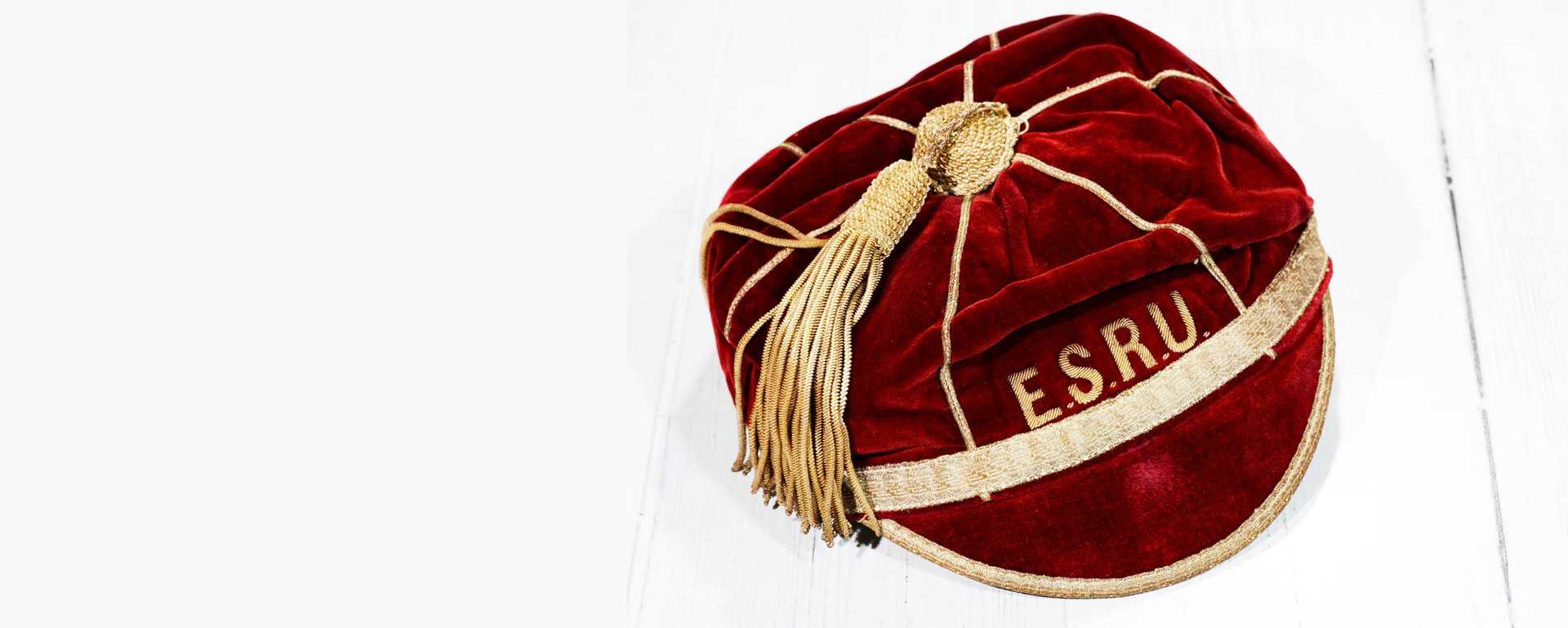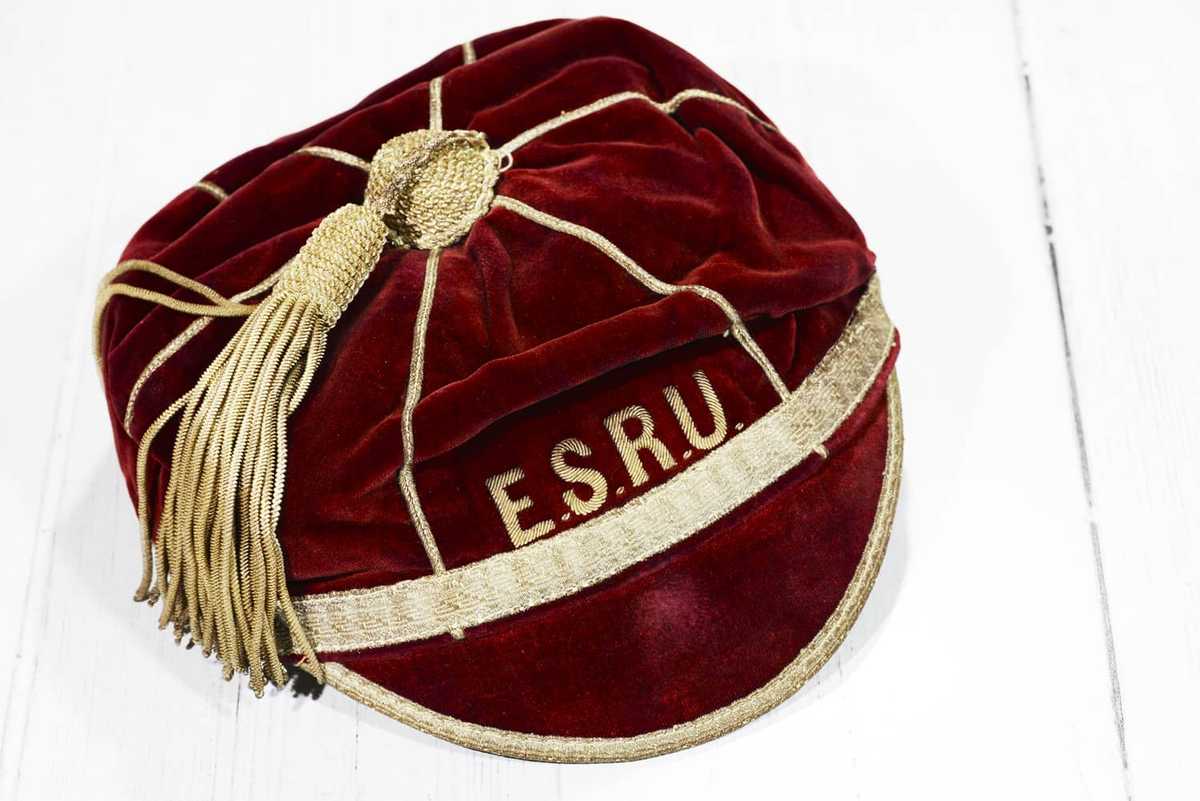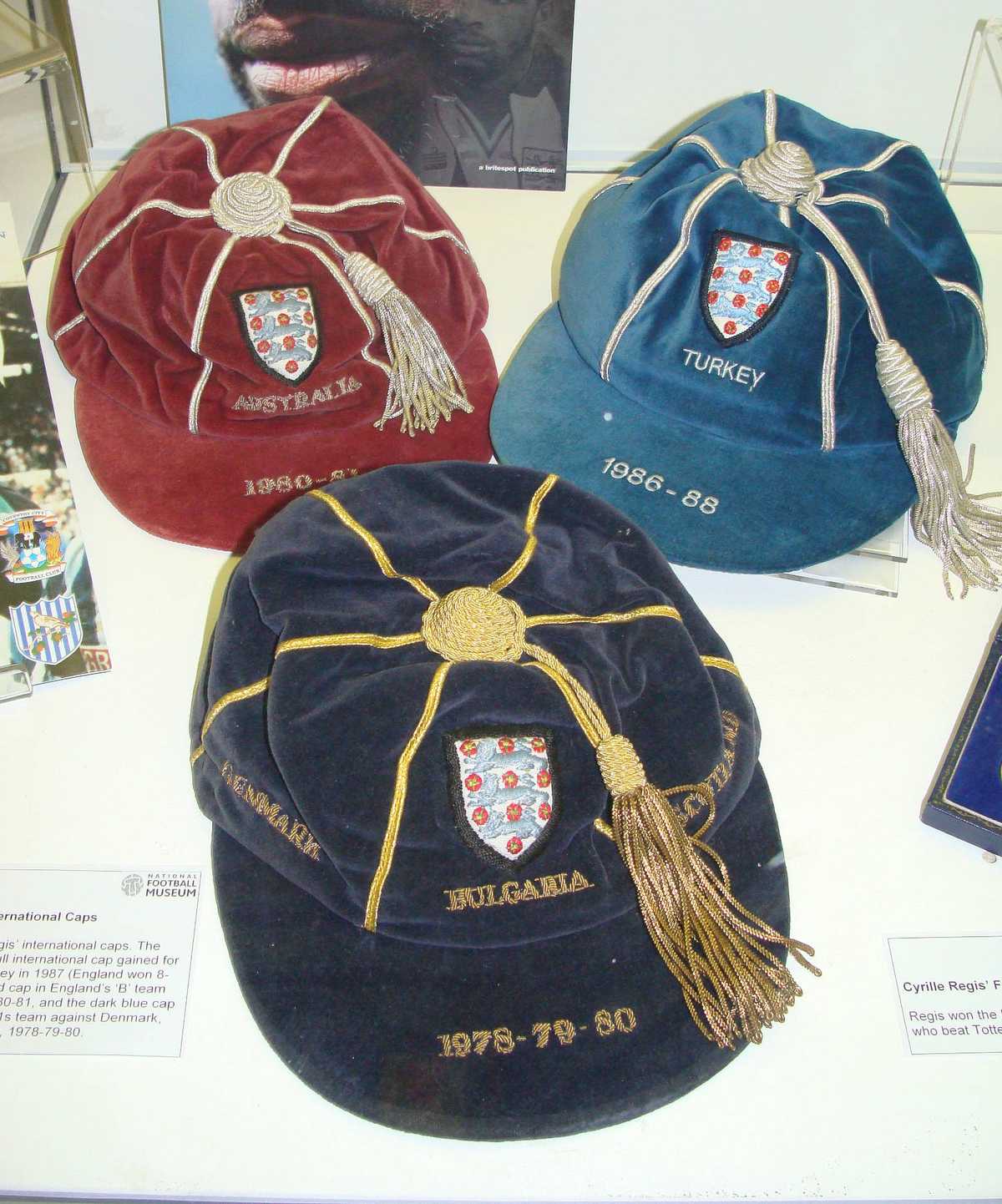What Is a Cap in Football?

In football, and many other sports, a "cap" is the word used to represent a player's appearance in an international game. For example, if a player has played ten times for the England national team, you could say that they have ten caps. A cap is more than simply a method of counting appearances. They are seen more as a badge of honour, and a way of showing your pride in representing your country.
Where Does the Term Cap Come From?
The term originates from Rugby football, which began in England in the 19th century. In the 1830s, some school students would play rugby wearing their velvet, tasselled caps, which were part of the school uniform. Surprisingly, at this time, there was no method of distinguishing players on opposing teams. However, as there was no limit on the number of players competing in a game of rugby, those wearing their caps had a clear advantage by easily identifying their teammates. These school caps would go on to represent the beginnings of the international cap, and sporting uniforms in general.

English Schools Rugby Union Cap for the 1910-11 Season | EvilC Brewing , CC BY-SA 4.0, via Wikimedia Commons
The success of the Rugby football cap would go on and spread to Association football in the whole of the United Kingdom, with each team creating its own style and colours. What started in schools had now spread to professional and international levels. The first-ever international football match, as recognized by FIFA, took place between England and Scotland in 1872. In this match, the Scottish team wore red cowls, which contrasted with the English, who would all be wearing their various school caps, which celebrated the local pride of the players.
This changed again in 1886 when the local school caps were replaced by a unique cap, designed especially for the national team. The new cap was made from white silk and had a red rose embroidered on the front. The new cap began as part of the official uniform of the national team but gradually evolved to become more of a token of pride. N. Lane Jackson, who was the founder of the English amateur football club, Corinthians, proposed that all future players who appeared for the English national team would receive a cap, and it will be termed an 'international cap'. This original design still influences the present-day caps that are awarded to the England rugby and football teams. In fact, the English Football Association claims that the caps are still produced by the same company that made the originals.
Do Football Players Still Get Caps?
The practice of awarding caps to players varies from sport to sport, and by the nation involved. Some sports will only award a cap for a player making their debut, while others will receive caps at certain milestones, for example, when making their 100th appearance. In football, the original tradition usually still applies, where each player will receive a cap for each appearance.
Do Players Get Actual Caps?
Again, this will vary depending on the nation involved, but the English Football Association will award a physical cap to each player, for every international game they play. The exception to this is for World cup or continental tournaments, where the player will be awarded a single cap for the entire tournament.
The caps that are awarded are still influenced by the original school cap styles from the 1800s and are embroidered with the details of the match for which was being played. If a player is consistently playing for their national team, they will need adequate space to store their growing collection of caps.

England International caps awarded to Cyrille Regis | Ben Sutherland , CC BY-SA 4.0, via Wikimedia Commons
Can Substitutes Earn Caps?
Yes, a substitute will qualify for a cap, providing that they are used at any point during the game. A cap will not be awarded if the substitute remains on the bench for the entire game.
Carlton Cole, of England, won 7 caps, all as a substitute, without ever starting a game. Owen Hargreaves, also of England, won 14 consecutive caps while appearing as a substitute. He played for an average of 18 minutes each game during this period.
Do Friendly Games Count as Caps?
According to FIFA regulations, caps will be awarded for any international 'A' game. Games in this category include
- World Cup games and qualifiers
- Continental competitions and qualifiers
- Olympic games and qualifiers
- Friendly matches between two senior international teams
Who Has the Most Caps in Football?
This is a difficult question to answer, as the rules for what constitutes a cap have not always been consistent. Around the beginning of the 20th century, it was common for national teams to play club sides from their own countries, and abroad. However, as stated above, these games would not qualify for a cap under modern FIFA regulations.
Under FIFA regulations, the award for the most caps awarded in soccer goes to Kristine Lilly, who played an incredible 354 times for the United States between 1987 and 2010. In the men's game, the award goes to Cristiano Ronaldo of Portugal and Bader Al-Mutawa of Kuwait, who have both played 196 times for their countries. (Updated February 2023).
Most Caps for Men - Top 10
- 197 - Cristiano Ronaldo - Portugal
- 196 - Bader Al-Mutawa - Kuwait
- 195 - Soh Chin Ann - Malaysia
- 184 - Ahmed Hassan - Egypt
- 183 - Ahmed Mubarak Al-Mahaijri - Oman
- 180 - Sergio Ramos - Spain
- 179 - Andrés Guardado - Mexico
- 178 - Mohamed Al-Deayea - Saudi Arabia
- 177 - Claudio Suárez - Mexico
- 176 - Gianluigi Buffon - Italy
Most Caps for Women - Top 10
- 354 - Kristine Lilly - United States
- 322 - Christine Sinclair - Canada
- 316 - Carli Lloyd - United States
- 311 - Christie Pearce - United States
- 276 - Mia Hamm - United States
- 274 - Julie Foudy - United States
- 255 - Abby Wambach - United States
- 241 - Joy Fawcett - United States
- 234 - Formiga - Brazil
- 232 - Caroline Seger - Sweden